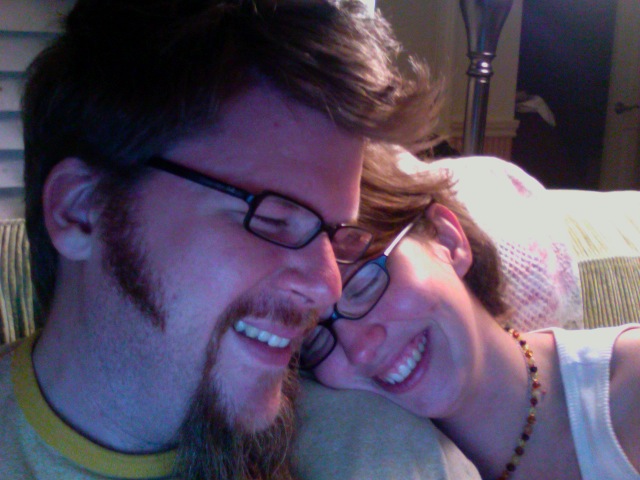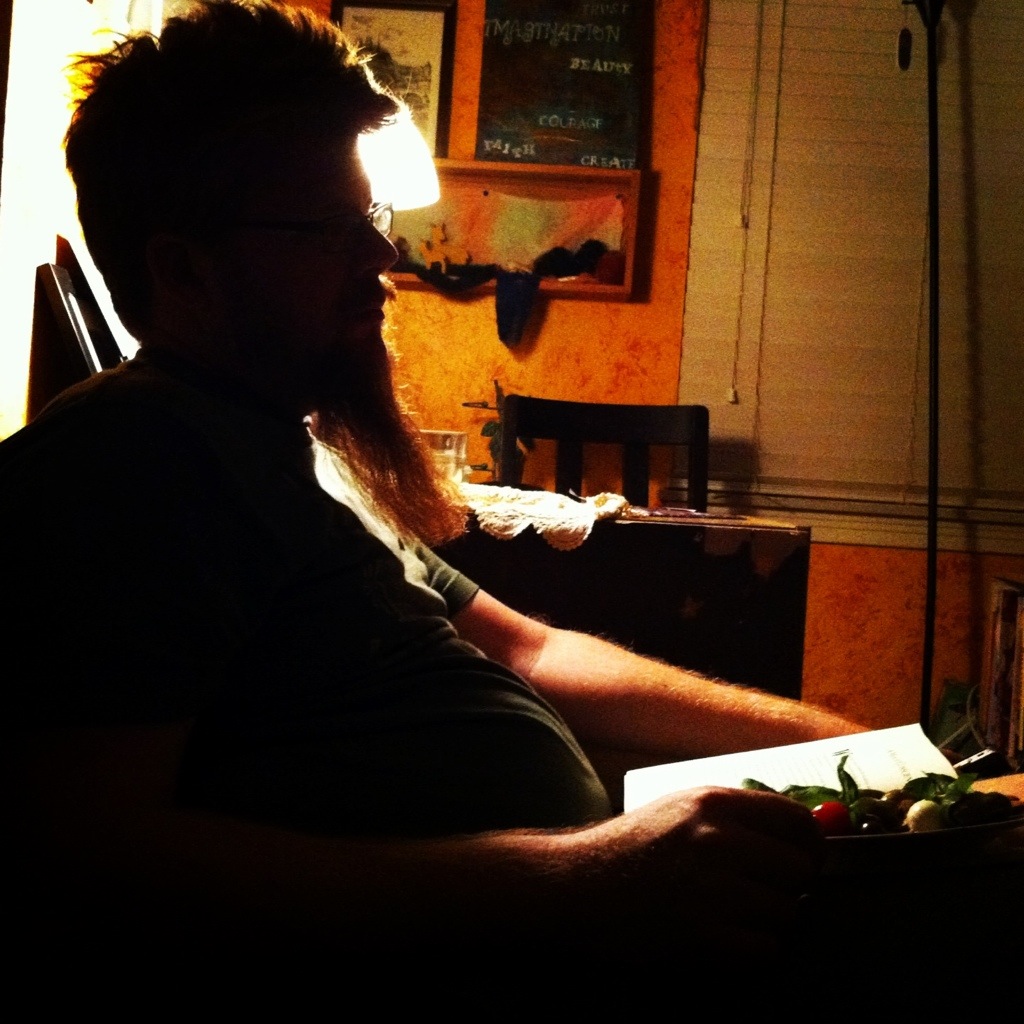Did you know that every 5 minutes an article is published on the topic of romantic relationships?
Actually, I just made that up. But it sure feels that way. From blogs to articles featured on trusted online news sources, newspapers, magazines, self-help books, talk shows, virtual discussion forums, to local discussion groups for men, women, couples, and of course religious groups, there is an abundance of information out there and your choice of venues to plug in to where you can learn all about how to have the best romantic relationship ever with your significant other.
You too can:
- “get what you want out of your relationship”
- “get your husband to be more involved in the home”
- learn the “10 ways to drive her wild in bed”
- or the “5 things every relationship must have”
- discover what makes the other person tick
- confirm that men lose all coherent thought processes when visually stimulated
- find out how you can be visually irresistible to your husband while not attracting attention from other men
- learn the secret that will keep him from straying
- find out what all women want
- accept that you’re so vastly different from one another that you won’t last unless you’re more informed.
You should be dissatisfied in your relationship: with yourself, with your spouse, with men or women in general, with your sex life, with your level of romance, with your level of connection, with your intellectual compatibility (ok, I don’t think I’ve actually seen this one anywhere), etc. and because you are dissatisfied you therefore need to fix your relationship. Which means that your relationship is broken. Which, of course, leads people to search for answers, quick fixes or tips.
I ignore most of it.
Maybe it’s because Jessica and I have never had conflict in our marriage. Wait, no, that’s not it.
Maybe it’s because I already know the “5 tips to infusing passion back into your relationship.” Nope.
It probably has more to do with the reality that I don’t fit much of the male stereotypes presented in relationship-based media. Or that Jessica doesn’t fit the typical woman mould. Or that the materials that well-intentioned people gave us that were supposed to help us in our relationship we found to be full of ideas that would put greater distance between us first (if we related to them at all).
It appears to me that our society is bent on establishing that there are great distances between people that can’t be helped, like magnets with opposite poles; that we’re rooted like trees far apart from each other and the best we can do is lean our branches toward each other. And so we start believing that this distance simply can’t be helped and our relationships aren’t actually broken at all, just a major challenge (or pain in the butt) to cope with. We start believing that this is just the way things are, even though we feel dissatisfied with the way things are at the very same time.
That it’s normal to have this built-in distance in relationships is supported by truths such as these:
- men and women are so vastly different, it’s like they’re from completely different planets.
- men and women each have their own set of needs and wants to be met
- it is impossible for men to understand women
- men are so easy to understand: simply replace every third word you say or think with the word sex, and every image, idea, or motivation with with something sexual, and you’re about half way there.
- if you could reduce men to a single defining and motivating word, it would be: sex
- if you could reduce women to a single defining and motivating word, it would be: impossible. (there’s a double meaning there; it’s supposed to be funny; except that I don’t think this list is actually funny at all)
- you must play games (manipulate, deceive, trick, bargain, etc) your partner to get them to do what you want or what needs to be done. Awesome byproduct: entertaining stories to share with your girlfriends or best buds where you can gloat about your accomplishments and belittle your partner, thereby increasing your status in said group of girlfriends/best buds.
There are many more truths about men, women and relationships out there that keep partners rooted far apart from each other. But how do you overcome these great relational distances? Relational media is all to happy to provide us with standards by which you can measure yourself, your partner, and your relationship, and rules that you can apply to your relationship to bring those branches together. (Maybe your branches can even connect in the middle and create a safe and shaded place to grow a family!)
Isn’t it so helpful to have these objective tools of measuring the success of your relationship? I always have a list of things to work on that will be sure to improve me and my romantic relationship: I should want sex all the time/I shouldn’t want to cuddle/I shouldn’t enjoy having conversations with my wife/I should look at porn/I shouldn’t look at porn/I should not be able to control how I stare at other women/I should take the trash out for sex not for other reasons/I should nurture more/I shouldn’t nurture too much/work on 10 tips to drive her wild in bed/think about sex more.
To be honest, I’m failing miserably at being a typical man. I don’t think I could ever measure up. But even if I could, I don’t think I want to. Even if all these truths about men and women are true, shouldn’t I aspire to be something more? Even if it’s accepted for men to be obsessed with sex and to have no accountability for their actions (because accountability presupposes an ability to control your actions), should I be content with that?
Typical man, typical woman, lists of needs, basic motivations and desires, Mars and Venus, it seems to me that so much relational advice out there seeks to illustrate and prove the impossibility of lasting loving relationships and then provide coping mechanisms for survival, and cover-up so you can look like you have the unattainable.
No, I realize that #notallrelationshipbooks are like that, and I do believe that there is still value to be found in relational media. But I believe that some of the underlying values and truths upon which they build are flawed – if not harmful.
Before ever looking at another “Top 5” or “Best 10” or “Best-Kept Secret” article, I suggest that you take a few steps back and evaluate the truths that your relationship is built upon. Are they the kinds of truths that you can build on, or that you have to reach around or over to connect with your partner?
Here are some of the truths that Jessica and I live by:
- men and women are more alike than they are different
- women and men can understand each other, deeply
- all the information we need to make our relationship work is contained within the two of us (it may take time to bring it out and we may need external influence to help it along, but it’s all already there)
- it is possible for two people to keep getting closer and closer, more and more into each other (two can become one)
- we are either slowly moving toward each other, or we are slowly drifting apart
- we hold nothing back (we’re all in)
- my partner is not stupid or incapable of change, in any way
- we choose our path; neither of us is a victim in this relationship
- we will change (grow, learn, evolve) and we desire to do so together
- everything should be discussed (including perceived or real hurts)
- we either reach an agreement or we continue discussing
- my partner can’t have stupid tastes or ideas – they’re too smart for that
- we can have the same values and goals
- we can have different values and goals
- my partner deserves for me to speak with him/her about our personal conflicts before anyone else
- my love and respect for my partner need to be obvious in my interactions with others (i.e. I will not mock or belittle him/her with my friends)
And here are our central values:
- Equality
- Respect
- Love
- Forgiveness
- Vulnerability (communication)
- Sacrifice
- Choice
These lists are not complete, and we would never impose them on any other relationship, or tout them as the solution for anyone’s relational conflicts. They work for us, and they have evolved over time. I only share them here so that they may be an encouragement to you, a springboard for you to have your own conversations with your partner, and develop your own relational truths and values.
In a world that seems determined to pull us apart, to drive wedges between us, to make us doubt about each other or ourselves based on how well we measure up to the status quo or whatever else is in the relational media “du jour,” we are constantly reminded that our relationship is our own, that we dictate the terms of its existence, and that no one can speak into it with as much intimate knowledge and a desire to see it succeed as she and I. If she loves and respects me for who I am, and I do the same for her, who cares how well we compare to the rest of the world? Whatever commonality we may have with other relationships, ours is still unique. It is ours. We may be fools (we’re the first to admit that we’ve done it “all wrong”), but we are happy fools. We have each other, and that is enough.
~ Jeremy
PS: There is ONE book about relationships that we recommend to those who ask us: “A Severe Mercy” by Sheldon Vanauken. Not surprisingly, it’s not a relationship book, but an autobiographical account of his journey with his wife, from the time they met, through their experience with cancer, and their faith journey. It’s a story about their unconventional, extreme, and beautiful relationship, which prompted us to have many, many conversations about our own unconventional, extreme, and beautiful relationship. Their story inspired us to create our own story.







Jeremy,
I enjoy the blog posts from you and Jessica and I’d love to get your opinion on this: I have a male friend who just started dating after the end of a long relationship. He is dating a woman who has a child and he was just telling me that one rub in their relationship is when her child is difficult to get to bed. She may spend a half hour or more on the process; there may be whining involved. Nevertheless afterwards, she is ready to pay attention to him and maybe pay very close attention to him. I thought that most men would relish the attention but he says that he finds watching her be a parent unattractive and is not ready to respond to her. Maybe its the stress of watching the process but I’ve had other friends tell me over the years that while their wife is attractive to them, when she’s a mom she is less attractive.
I think generally women find men sexy when they parent. Do you think viewing a woman as a mom is unattractive to most men?
Thanks.
Oh wow. I should have responded to this eons ago. If better late than never is true, then here is my very, very late reply. I’m sorry that it has taken so long.
I find that I can’t speak for most men. I have a limited number of friends personally, I can’t trust what the media says about men, nor that what men say about themselves on social media is reflective of the majority of men (I certainly hope not, especially when it comes to comments on news related sites).
I can’t speak for your male friend either.
But I can speak for me. I wonder if maybe your friend is looking for a casual relationship. If he’s interested in this woman but not in her child, then he’s not really interested in this woman as a whole, just in a part of her. Having a child changes a person, and their child is very much a part of who they are, not just a part of their setting or a peripheral person. There’s nothing wrong with him wanting a casual relationship, as long as he’s made it clear that that is what he is looking for.
It could be too that he is dealing with sensory overload, especially if there is a lot of whining involved in the bedtime routine, and he just needs a little time to decompress, to find his center again, so to speak. I could see that. We’re each unique and different. I’m sure this mom is used to transitioning from “kid mode” to “adult mode” quickly as it’s a part of her daily routine, but maybe he’s not?
As for me and my wife, I’m having a difficult time imagining seeing her sexiness so compartmentalized. She is attractive to me in most situations. Whether I’m focused on her sexiness in a particular role has more to do with what’s going with me in that moment than whether I am able to see her that way in that role or not. I find Jessica attractive when she’s parenting. I find her attractive when she’s working. And in everything else she does too. Also, she never stops being a mom, even when she’s not directly parenting one of our children.
I will say that when I’m focused on my children, I don’t typically have sex on the brain. That’s just weird for me. I can think, in passing, of what I might be looking forward to later, when kids aren’t directly in the picture, but when I’m interacting with them I just can’t go there. To me, that has more to do with me not mixing sexual thoughts with my children than not mixing sexual thoughts with their mom. Maybe that’s what he’s struggling with. Does that make sense?
Or maybe he doesn’t find her sexy unless she’s paying attention to only him?
Maybe he doesn’t approve of the way she parents?
I would need more information to speak more specifically, but it should definitely be something that they talk about.
To answer your question as directly as I can, without speaking for all men, or even most men, whether a woman is a mom or not doesn’t seem to affect whether or not I find her attractive.
I hope this helps someone, even if not the person originally asking the question…
Jeremy